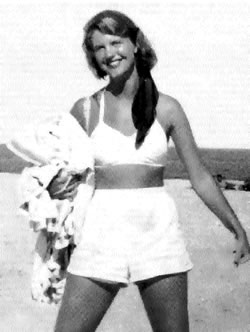|
|
“Oh, Frieda
Rebecca, of course! Ein Wunderkind, Mummy. Ein Wunderkind!” – Sylvia Plath to her Mother, just after her
daughter was born on 1st April 1960.
Sylvia Plath
ficou radiante com o nascimento de sua filha, Frieda Rebecca Hughes. “Nunca me
senti tão feliz na minha vida”, escreveu ela à mãe. Alguns meses, mais
tarde, em 19 de Fevereiro de 1961, escreveu esta poesia, que reflecte ao mesmo
tempo as alegrias da maternidade e a distância que a criança acaba por
estabelecer em relação aos pais enquanto indivíduo dotado do seu próprio
destino.
